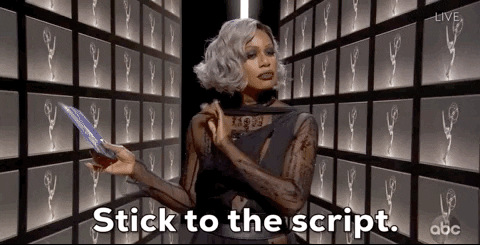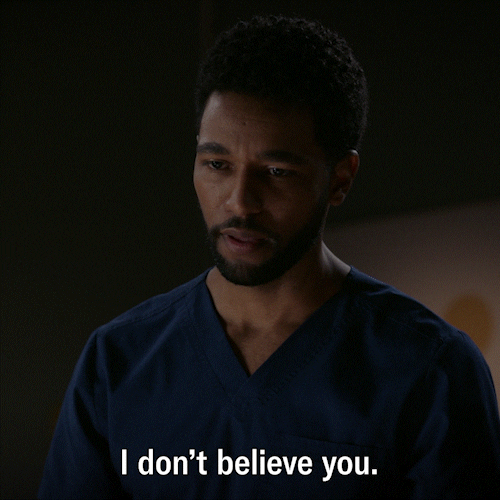
We out here doing damage control on the daily!
You can call me the Olivia Pope of HR.
Why?
Because like PR, HR:
- Relies on communication
- Manages relationships
- Shapes perceptions
- Manages crises (dumpster fire fighters)
While PR focuses on the external relationships, HR spends most of its time on the internal relationships.
At the core of those internal relationships?
Communication.
Effective communication is crucial for HR’s ability to do their job. Not just how HR communicates but how everyone at the organization communicates.
Especially your leaders and managers.
Raise your hand if you’ve had to script your leadership or management team for any conversations?
No shame here! Because, same.
It’s crucial that certain conversations go really well because words are powerful.
Why words matter:

Miscommunications can disrupt work and betray trust.
We hate to see it!
Poorly delivered messages can impact:
- Engagement
- Productivity
- Retention
- Trust
“I’m a great communicator” – the #1 lie everyone tells…
JOIN 130K+ HR LEADERS
Get insights, learnings, and advice on how to build companies and cultures that people actually love.
No spam. Unsubscribe any time.
Only 7% of US workers feel communication is timely, accurate and transparent.
And 69% of managers feel uncomfortable communicating with their employees.
You know what could help your team communicate better and make managers and leaders more comfortable communicating with their employees?
Some scripts.
3 most common scripted conversations:

I always have a set of scripts handy to give to managers and leaders because preparation is key for the success of these conversations.
We all know what happens when a message doesn’t land properly.
Confusion. Fear. Anger. Distrust.
A really good script gives you the support you need to land the message in an effective manner.
To be clear: I’m not suggesting we all become robots and say exactly the same thing.
I’m just suggesting we be better prepared for important convos because their impact is massive!
The 3 most commonly scripted convos:
- Company updates
- Performance challenges
- Terminations
These conversations tend to be the trickiest and the ones that make folks the most nervous.
When writing a script it’s important to:
- Be as direct as possible: For something like a termination or performance issue skirting around the issue isn’t kind or empathetic. Pull the bandaid off and get to it.
- Be concise: We’re in the scroll times, if you’re reciting paragraphs and using corporate jargon you’ve lost the audience. Our attention spans are short.
- Share context: sharing why something is changing, what is prompting this conversation, or how this impacts the organization sets the right foundation and frames the conversation.
- Be empathetic: these changes can be scary for employees and it’s important to remember there’s a human on the other side of that conversation. How would you want to receive this news?
Want access to the scripts I use? Shoot me a reply and I’ll send you my examples.
BTW: there’s a crew of 150+ HR/People leaders in my community, Safe Space, talking about how to navigate these comms and giving feedback to each other in real time. Where else can you get instant feedback or a gut check on what you’re dealing with?
Writing a script is only half the battle. The other half?
How the message is delivered.
Can you script sincerity?

Are we all just play-acting in the workplace? Uh yeah?
Real talk: your employees are the first to notice when you’re not being sincere. And they’re quick to talk about it with each other.
At the end of the day – the message lives and dies by the messenger.
We’ve seen it time and time again when a CEO gets blasted on social media for their poor delivery of a message.
After all, HR writing the script is only half the battle!
If you’re a founder, executive, leader, or manager you need to find it within your maybe cold-withered heart to care about the impact of your messages on your employees or prepare for the consequences.
Just sayin’.
Next on the culture quest:

There’s been a lot of talk of how AI is going to impact HR.
For example: could you use AI to draft all your internal comms?
Yes and no.
More on that next week!


